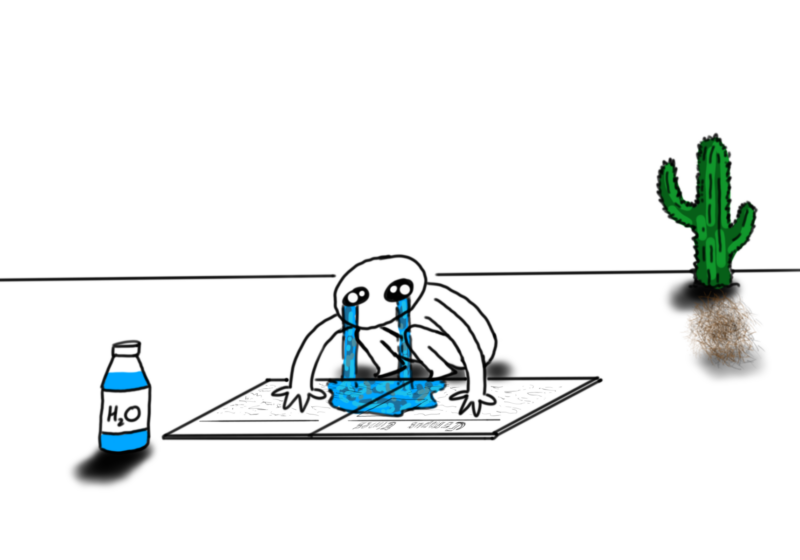Humans experience pain when they’re injured. Humans care for their kin more than for individuals who are distantly related. Humans get hungry when they haven’t eaten for a while. From an evolutionary perspective, this all makes sense.
However, according to Laura Cowie-Haskell’s op-ed in the last week’s Campus Times, trying to explain these phenomena through an evolutionary perspective is mere “pseudo-scientific framing.” After all, she asks, “How can you can [sic] practice science when your subject matter existed close to six million years ago?”
It’s important to note that her criticism isn’t unique to evolutionary psychology. If correct, her criticism would negate whole swaths of modern evolutionary biology as well. Natural selection, after all, didn’t just start with humans a few thousand years ago. It began with simple, single-celled organisms a few billion years ago. However, I take it, Cowie-Haskell wouldn’t describe herself as a creationist. She would agree that at least some features of humans are adaptations, like the fact that our kidneys filter waste from our blood or that our lungs absorb oxygen from the air or that our skin protects us from pathogens. So why stop there?
If natural selection finely crafted the structure of our kidneys, lungs, and skin, why wouldn’t it act on the most important organ of our body, the brain? In short, any critic of evolutionary psychology will have to explain what it is about the brain that made it immune to the selective pressures of our ancestral environments — and that’s a tall order.
Consider the examples at the beginning of this article. It sure seems as though it would be adaptive for humans to care for their kin, to seek food, and to feel pain. Or are we to believe that these dispositions are solely the products of our socialization, like trends in fashion and music? A denier of evolutionary psychology will be at a loss explaining these behaviors that arise early in development, and that are evident across cultures and species. Merely waving our hands and saying, “Society did it,” doesn’t count as a satisfying explanation.
The antipathy toward evolutionary psychology seems to stem not from any serious methodological concerns with the approach, but rather from the worry that it would excuse inequalities and injustices. Cowie-Haskell paints evolutionary psychologists as implying that the discovery of natural sex differences among humans would warrant their perpetuation. If, for instance, it were found that men were naturally more industrious, stable, and assertive than women, it would follow that we should try to preserve these sex differences, because “that’s just the way it is.”
The problem with this argument is that exactly zero evolutionary psychologists believe this. It’s trivially easy to show that natural things aren’t always good and that unnatural things aren’t always bad. For example, for the bulk of human history, humans didn’t have 20/20 vision. Now, with a pair of glasses, anyone can see just as well as anyone else. No evolutionary psychologist, however, would say that glasses are unnatural and therefore ought to be banned. Here’s another example: For the bulk of human history, we lived at subsistence levels, invariably hovering on the brink of starvation. This doesn’t at all motivate any evolutionary psychologists to call for an end to agriculture. The examples can be multiplied indefinitely.
Ultimately, the sins attributed to evolutionary psychology rest on glaring mischaracterizations of the field. It is not, as Cowie-Haskell claims, “part and parcel of the […] institution of heterosexuality.” (Was everyone before Charles Darwin completely fine with homosexuality?) It does not purport to “explain all cultural and social phenomena,” only the phenomena that solved perennial reproductive challenges in our ancestral environment. Evolutionary psychology is not a field that “requires men and women to be ‘opposites.’” It doesn’t require people to be anything. It describes our mental processes in terms of their role in promoting reproductive fitness.
If evolutionary psychology really were as dismal as Cowie-Haskell makes it appear, I would agree that it should be sent to the “graveyard of dead-white-guy science that has failed reality.” Fortunately, since Cowie-Haskell is wildly mistaken, we don’t have to discard a now-burgeoning field of psychology that explains phenomena as diverse as coalition formation, status seeking, mate preferences, parental care, and disease avoidance. There’s no doubt that legitimate criticisms can be made about many of the methods employed by evolutionary psychologists, but no one reading through Cowie-Haskell’s article will find them.
Editor’s note: When referring to “pseudo-scientific framing,” the author is quoting the print version of Cowie-Haskell’s op-ed. Online, that phrase does not explicitly appear. Additionally, the typo referred to was the result of an editing error, not by Cowie-Haskell.





